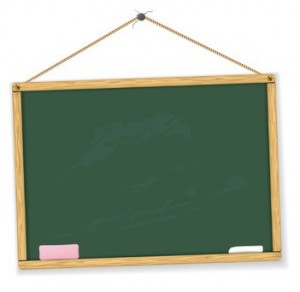
The bankruptcy discharge is the court order that makes a debt forever unenforceable.
When a debt is discharged, it is no longer valid against the debtor personally.
Put another way, the slate is wiped clean.
Discharge is permanent
The bankruptcy discharge is actually an injunction against certain actions by creditors. It affects debts that existed before the bankruptcy was filed.
The discharge injunction replaces the automatic stay that comes into place when a bankruptcy case is filed.
The discharge injunction prevents the creditor from beginning or continuing any law suit to enforce a discharged debt against the debtor . Any judgment entered before the bankruptcy was commenced is void after the discharge.
The entire bankruptcy statute on effect of discharge
The discharge encompasses not only debts that were liquidated as of the filing of the case, but any liability that arises from events before filing so long as the affected creditor, or would-be creditor, got notice of the bankruptcy.
Example: the liability of the debtor for an automobile accident in which he was at fault is discharged, even though there has not been a trial with respect to the accident.
Likewise, the liability of the debtor on the pre petition guaranty of someone else’s debt is discharged.
Personal liability wiped out
The discharge eliminates the debtor’s personal liability for a debt.
When you have personal liability for a debt, a creditor with a judgment can use legal processes, like levy and garnishment, to reach your non exempt assets and earnings.
Personal liability stays with you wherever you live and whatever your marital status.
Liens survive bankruptcy
Even though personal liability is wiped out, most liens (the liability of an item of property for a debt secured by that property) passes through bankruptcy unchanged.
Personal liability is gone, but the lien remains.
So, after a bankruptcy discharge, a lien may remain a charge on an asset the debtor owned when the case was commenced. But tax liens or judgment liens associated with discharged debts cannot become a lien on any assets that the debtor acquires after bankruptcy.
Nor can the lien holder look to the debtor with a discharge for any deficiency between the value of the liened property and the original debt. The discharge eliminated any liability for the debt beyond the value of the collateral.
Illustrations
A home equity loan remains as a lien on the real property after a bankruptcy discharge. If the loan is not paid, the lender cannot sue the discharged debtor to attempt to collect the debt out of current wages because the discharge has eliminated the debtor/borrower’s personal liability for the loan.
The creditor can foreclose on the lien on the pledged property, however.
A judgment lien may remain a charge on assets owned before the bankruptcy, but does not attach to assets acquired after the bankruptcy is filed. The lien may be avoided if it impairs an exemption.
Debts not discharged
This entire discussion, of course, relates to dischargeable debts.
Some debts are not dischargeable in bankruptcy. See 11 U.S.C. 523 for the list of non dischargeable debts.
Non dischargeable debts are unaltered by the bankruptcy discharge and remain just as valid as they were before the bankruptcy. The debtor’s personal liability continues.
Read more
What will you do with discharge?
When creditors call after you get a discharge
The community property discharge
Image courtesy of Fotolia.
